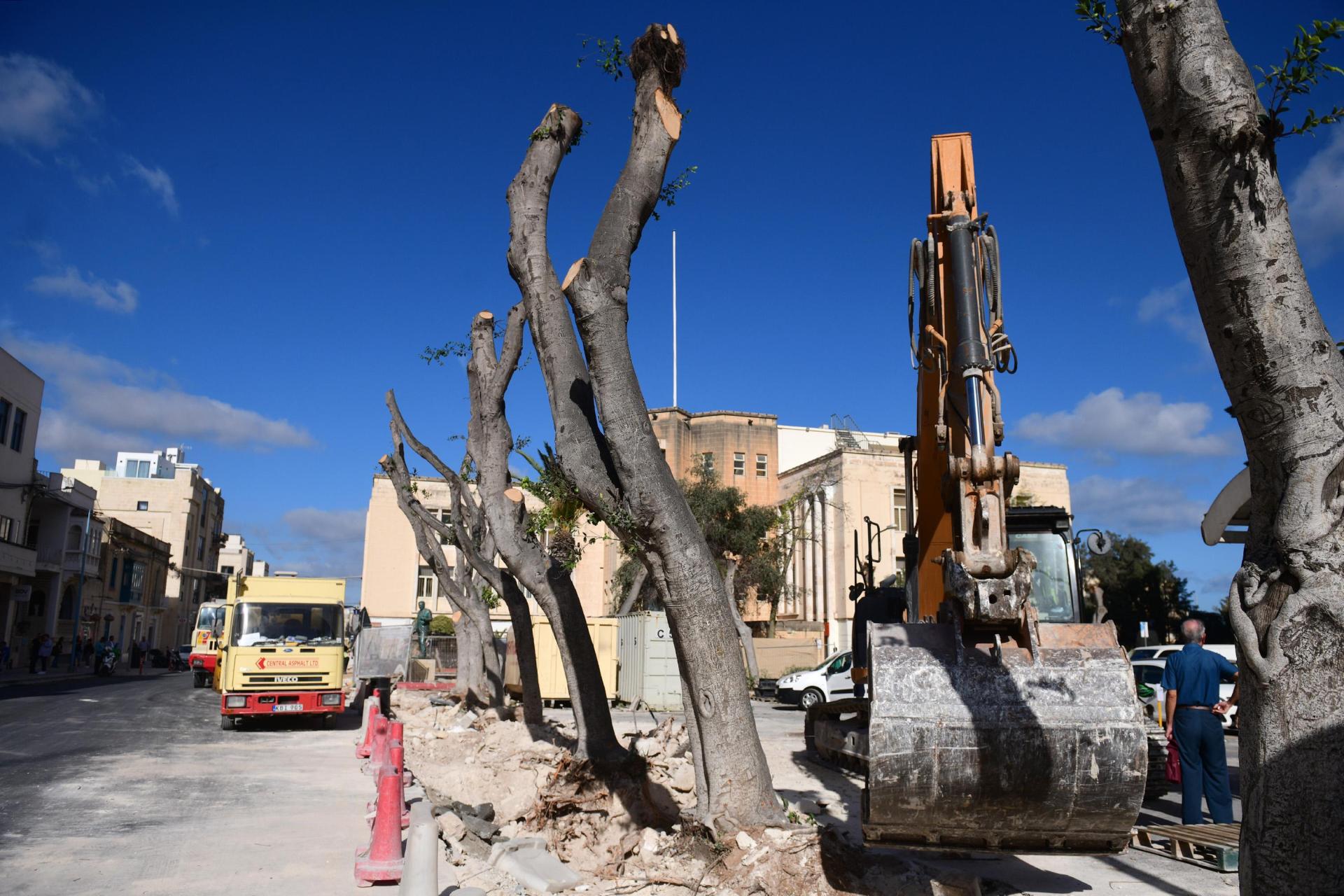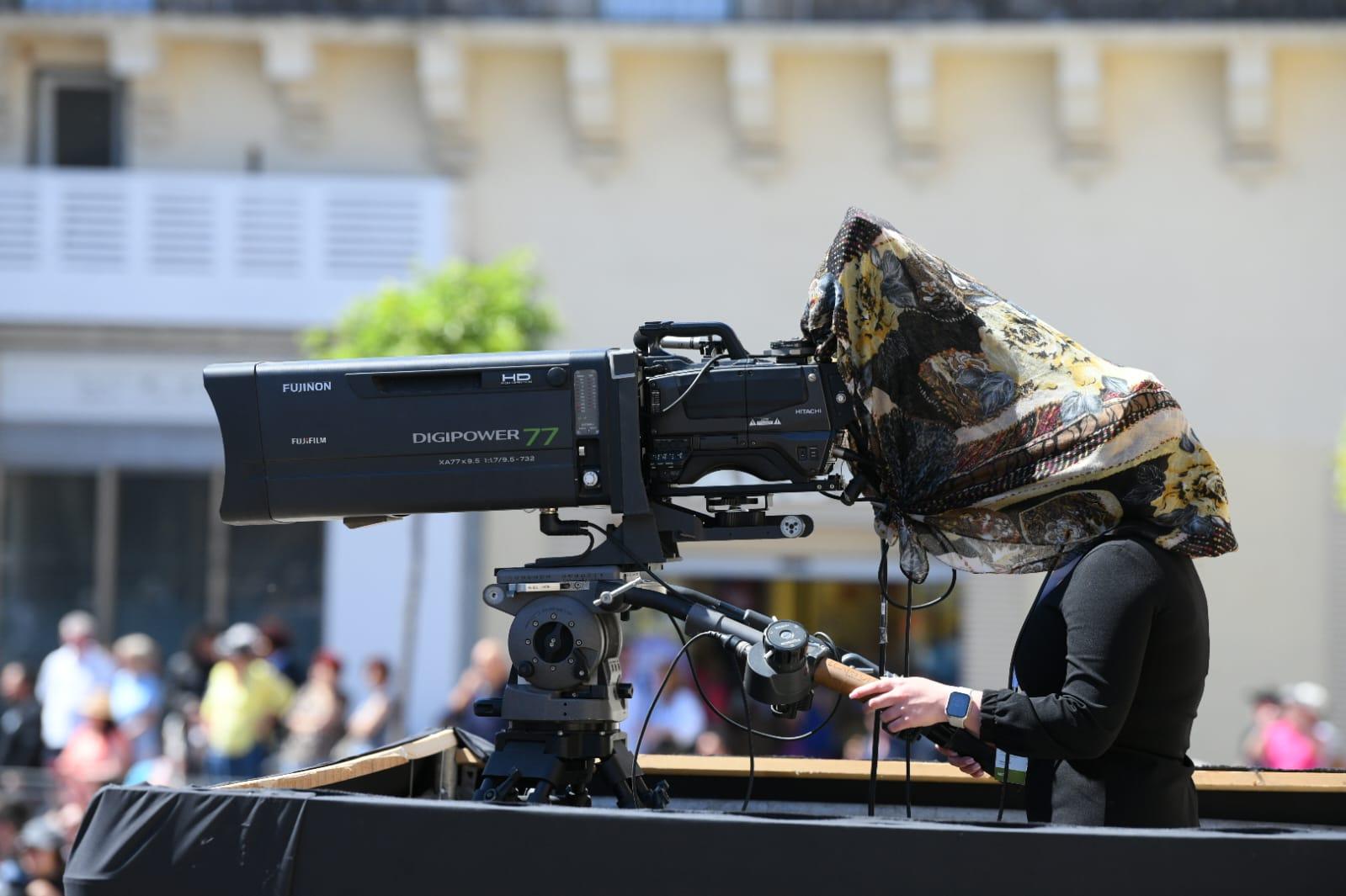Myriam Spiteri Debono might have been absent from the public eye for 25 years, but her powerful speech as she was appointed 11th President of Malta showed she had her finger on the pulse of Malta's core issues - and complexities.
These are 10 key recommendations from her address to politicians and dignitaries at the Grandmaster’s Palace in Valletta.
1) On financial greed 'worse than drug addiction'
One of the president's most headline-grabbing themes was the issue of financial greed, which she said was "worse than drug addiction".
"The relentless pursuit of riches, more often than not, translates itself into various forms of corruption; the pursuer becomes indifferent to the suffering he may directly or indirectly cause others," she said.
She also warned that the concept of good governance should never be sidelined as it formed part of the widening and evolution of democracy.
Her comments echo consecutive surveys that show Maltese people think corruption is widespread and consider it among the largest problems in society.
Spiteri Debono's comments follow months of revelations about a driving licence racket at Transport Malta and a massive benefit fraud racket running into millions of euros.
 People in Malta think political parties and officials handing out permits are the most corrupt. File photos: Times of Malta
People in Malta think political parties and officials handing out permits are the most corrupt. File photos: Times of Malta2) On 'embracing' foreign workers
Spiteri Debono tackled the thorny issue of foreign workers and economic migrants, which has turned into something of a political ball.
While the PN leader on one hand warned that the Maltese risked becoming a minority in their own country, the prime minister has insisted that the country's economic growth relied on sectors that required foreign workers.
"As a first step in the integration of these foreigners, less fortunate than we are, we must embrace and understand them," she urged.
"We have to go beyond mere tolerance, with its inherent passivity, also, we have to rise above an unwilling acceptance because 'we need them'."
Spiteri Debono echoed another former president, Marie Louise Coleiro Preco, in her attitude towards migration.
The President said Malta should “welcome with open arms” those who, “with great sacrifice”, flee social and political cruelty in their home country, and, with the cooperation of European partners seek ways of assisting them to establish foundations for a better life.
In recent years, there have been several claims of Malta’s failure to assist people at risk at sea, while the sudden deportation of migrant Kusi Dismark after 13 years shocked many.
 Vincent Enu's (left) children born in Malta are technically stateless. Kusi Dismark (right) was deported after 13 years of living, studying and working in Malta legally.
Vincent Enu's (left) children born in Malta are technically stateless. Kusi Dismark (right) was deported after 13 years of living, studying and working in Malta legally.3) On the 'continuously threatened' environment
Spiteri Debono's comments suggested she will be a president prepared to speak out against overdevelopment and for the protection of the environment.
She spoke of the importance of educating the next generation.
"In this way, they will be tangibly familiar and have a conscious appreciation of the natural and physical environment of our country, which physical and natural and environment is being continuously threatened."
Overdevelopment has been a thorn in the side of the PL government with the building frenzy that peaked in the past decade costing the lives of at least two people: Miriam Pace and Jean Paul Sofia.
Trees have also felt the brunt: from the trees uprooted along Mdina Road during the Central Link Project to trees in the Mosta square that survived the chop in November but seem to have allegedly been poisoned.
 Old trees in Mosta were 'butchered' as part of embellishment works but were saved from being transplanted. Photo: Matthew Mirabelli
Old trees in Mosta were 'butchered' as part of embellishment works but were saved from being transplanted. Photo: Matthew Mirabelli4) On 'eradicating the taboos' of mental health
She also suggested the authorities strengthen mental health services.
"Our present challenge in this sector is to bring to the fore the mental health of our people in order to eradicate the taboos and prejudices surrounding it."
In recent years, mental health practitioners and NGOs offering support within the community have warned of an increasing number of people dealing with depression, anxiety or relational issues.
For more than a decade, people who work in the sector have been promised a standalone mental health hospital, with the new minister suggesting care be provided close to Mater Dei hospital.
5) On the media being a 'fourth pillar of democracy'
Spiteri Debono also warned about recommendations by public inquiries, which, if not implemented, "become a useless exercise".
A lot still needs to be done in the implementation of the recommendations made by the public inquiry into the assassination of journalist Daphne Caruana Galizia, especially when it comes to media reforms, she said.
"I am particularly referring to those reforms concerning the media. I emphasise that the media, together with the three organs of the State, is the fourth pillar of democracy," she said.
Last year, Robert Abela promised a White Paper on media laws, as he tabled the final report of a committee of media experts he had appointed to advise on the reform.
 On Thursday the new President said that together with the three organs of the State, the media is the fourth pillar of democracy. Photo: Matthew Mirabelli
On Thursday the new President said that together with the three organs of the State, the media is the fourth pillar of democracy. Photo: Matthew Mirabelli6) On healing the 'bleeding' wounds from political murders
The new president reserved some of her strongest comments for a section on Caruana Galizia’s assassination.
She said the wound generated by her murder was still “wide open and bleeding”.
"Healing is a must for this horrendous episode to be wound up. Once and for all. Otherwise, we cannot move forward. Otherwise, its fallout shall continue to haunt us," she said.
Although a considerable period has elapsed since the murders of Karin Grech and Raymond Caruana, these two episodes never had closure, and, as a consequence, their wounds are still seeping.
“Let us make sure that this does not happen again," she urged.
 Daphne Caruana Galizia was killed by a car bomb in 2017 following revelations about the Panama Paper scandal. In this photo, her parents - the late Rose and Michael Vella- attend a civil society protest. Photo: Jonathan Borg
Daphne Caruana Galizia was killed by a car bomb in 2017 following revelations about the Panama Paper scandal. In this photo, her parents - the late Rose and Michael Vella- attend a civil society protest. Photo: Jonathan Borg7) On a more representative electoral system
Soon after swearing to uphold the constitution on Thursday, Spiteri Debono also had some suggestions about a more representative electoral system.
She pointed out how the smaller parties are “at a disadvantage” when it comes to the election of MPs.
“Amendments in this regard would bring our electoral system more into line with the basic democratic principle of 'one person, one vote, one value.'"
In 2021, ADPD kicked off constitutional proceedings challenging the validity of the electoral system, which it said was discriminatory and kept smaller parties out of parliament.
The challenge was prompted by parliament's approval of a law on gender representation, which independent candidate Arnold Cassola separately challenged in court the following year.
In the elections held that same year, ADPD's Sandra Gauci had obtained more votes than a PL candidate who got into parliament through the mechanism.
8) On political fatigue
Spiteri Debono also had a word for people involved in politics, whom she said should ensure they do not cause apathy towards politics in the populace.
People, she warned, were increasingly becoming indifferent to politics.
“If this situation is not seriously tackled, our country shall suffer from a shortage of future leaders from the youthful segment of society,” she said.
Surveys have increasingly shown that the number of youngsters who are not interested in participating in the political system is on the increase, with many having lost faith in traditional parties and their ability to make a difference.
And according to a recent University of Malta study, slightly more than a third of adolescent voters aged 16 and 17 are not interested in politics, with roughly the same number having a lukewarm interest.
9) On political U-turns
In keeping on the topic of politics, Spiteri Debono said that in the public arena, it was not easy to admit one’s mistakes and change routes.
A policy change should, therefore, not be turned into an opportunity to "fling barbs at each other".
“A change of route, at least in more important matters, should be lauded and not debased as a ‘U-turn’”.
Last summer, Abela announced an inquiry into Sofia’s death just five days after 40 Labour MPs voted against a public inquiry, unleashing widespread anger.
The prime minister had announced the launch of the inquiry shortly before crowds gathered for a vigil called by the construction victim's mother.
 A large crowd turned up outside the Office of the Prime Minister calling for justice for Jean Paul Sofia and other construction site victims, including Mohammed Kasem Hashem Alkhateeb. Photo: Matthew Mirabelli
A large crowd turned up outside the Office of the Prime Minister calling for justice for Jean Paul Sofia and other construction site victims, including Mohammed Kasem Hashem Alkhateeb. Photo: Matthew Mirabelli10) On peace efforts
The new president also has high hopes for Malta's efforts beyond our shores. She said the island has to strive so that the United Nations is better equipped to foster peace.
“Let us not be discouraged, because this is a long laborious road full of more downs than ups - its progress less than a snail’s pace."
For some time now, she said, the UN – “supposedly engaged in the promotion of peace” - has seemed as toothless as the League of Nations before the Second World War.
Just last month, Malta played an important role in pushing for a new resolution calling for an "immediate" ceasefire in Gaza, after Russia and China had vetoed an earlier text proposed by the US.
On March 25, after more than five months of war, the UN Security Council for the first time demanded an immediate ceasefire after the United States, Israel's ally which vetoed previous drafts, abstained.
 The Permanent Representative of Malta to the United Nations, Ambassador Vanessa Frazier, speaks during a UN Security Council meeting. AFP.
The Permanent Representative of Malta to the United Nations, Ambassador Vanessa Frazier, speaks during a UN Security Council meeting. AFP.